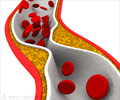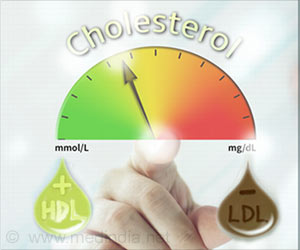Health freaks know that high levels of total cholesterol and LDL cholesterol can increase the risk of heart attacks.
Health freaks know that high levels of total cholesterol and LDL cholesterol can increase the risk of heart attacks. Now, scientists have discovered a little-known type of cholesterol which may prove to be the most lethal of all.
Cholesterol called oxycholesterol is virtually unknown to the public and may be the most serious cardiovascular health threat of all.Fried and processed food, particularly fast food, contains high amounts of oxycholesterol.
Scientists from China presented one of the first studies on the cholesterol-boosting effects of oxycholesterol at the 238th National Meeting of the American Chemical Society.
The researchers hope their findings raise public awareness about oxycholesterol, including foods with the highest levels of the substance and other foods that can combat oxycholesterol's effects.
"Total cholesterol, low-density lipoprotein cholesterol (LDL), and the heart-healthy high-density lipoprotein cholesterol (HDL) are still important health issues," says study leader Zhen-Yu Chen, Ph.D., of Chinese University of Hong Kong.
"But the public should recognize that oxycholesterol is also important and cannot be ignored. Our work demonstrated that oxycholesterol boosts total cholesterol levels and promotes atherosclerosis ["hardening of the arteries"] more than non-oxidized cholesterol," the expert added.
Advertisement
Most importantly, according to Chen, oxycholesterol had undesirable effects on "artery function." Oxycholesterol reduced the elasticity of arteries, impairing their ability to expand and carry more blood. That expansion can allow more blood to flow through arteries that are partially blocked by plaques, potentially reducing the risk that a clot will form and cause a heart attack or stroke.
Advertisement
Source-ANI
SRM












